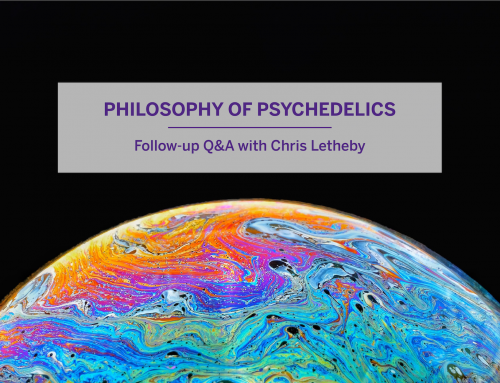I’ve been thinking more about the intersection of science and politics, somewhat unsure how to broach such a broad topic. The question I’m pondering is: why conflict? Why not smooth integration of scientific consensus into the decision-making process?
Large, unwieldy question.
Now the advice typically given in such a situation is to choose a specific problem and make some small contribution to its eventual solution. Sound counsel! (Especially to graduate students over-fond of generality.) No shortage here of potential case studies, either: on policy issues surrounding climate change, sexual education, drug use, or even evolutionary biology, the relationship between knowledge and power is not at all straight-forward. It’s not just that we can’t ‘read off’ policy from science: sometimes we don’t bother to read at all. Or, as Canada’s Justice Minister Rob Nicholson said recently, responding to criticism of the Conservative party’s upcoming crime bill: “we don’t govern on the basis of statistics.”
My word! On what basis do you then govern?
In what follows I will not heed the wisdom of my colleagues and, instead, take advantage of this space and risk the distortions of generality. And if we’re taking risks anyway, may as well build our cities on the slopes of Vesuvius! Here is Nietzsche, to frame the problem:
…science also rests on a faith; there simply is no science ‘without presuppositions.’ The question whether truth is needed must not only have been affirmed in advanced, but affirmed to such a degree that the principle, the faith, the conviction finds expression: “Nothing is needed more than truth, and in relation to it everything else has only second-rate value.” […] Precisely this conviction could never have come into being if both truth and untruth constantly proved to be useful, which is the case. Thus—the faith in science, which after all exists undeniably, cannot owe its origin to such a calculus of utility; it must have originated in spite of the fact that disutility and dangerousness of ‘the will to truth,’ of ‘truth at any price,’ is proved to it constantly. (The Gay Science, §344. The ‘Vesuvius’ line above is, of course, a reference to Nietzsche’s exhortation to ‘live dangerously’ earlier in the text, cf. §283).
The ‘moral ground’ that Nietzsche identifies and upon which lies science is the conviction that, above all, truth is to be valued: above deception and self-deception, above dissimulation, above manipulation and propaganda, above ‘noble lies’ no matter how useful to the perpetuation of our lives and institutions. And this conviction that truth is itself more important than the very survival of institutions, of faiths, creeds, and practices, of cherished beliefs and entrenched traditions, of forms of life and ways of doing things, with no regard to the saving of face or preservation of dignity is our key to understanding why there should be a conflict here—instead, say, of the Utopian accord of the modern Enlightenment fantasy: for example, the smooth continuity of science and polity found in Rodenberry’s original vision of Star Trek. Power seeks stability and self-perpetuation; science, as Nietzsche sees it, is utterly indifferent to such concerns. It would bury the noblest lie and indict the softest guile merely for being falsehoods. Surely there are worse sins!
(Of course all this elides science’s own difficult relationship with truth, too: scientists are not immune to self-deception or the temptations of money and prestige. Inasmuch as the enterprise remains self-correcting hopefully this idealization will not inflict undue violence on the argument. But relationship to truth it is. Marriage, even. So what of some thrown plates and nights spent on the couch?)
The other side, of course, sees things rather differently. Back in 2004 journalist Ron Suskind related a now-famous exchange he had with a White House aide, one that best captures power’s relation to truth (one could perhaps now write a book entitled Speaks Power to Truth, inverting the pacifist Quaker injunction):
The aide said that guys like me were ”in what we call the reality-based community,” which he defined as people who ”believe that solutions emerge from your judicious study of discernible reality.” I nodded and murmured something about enlightenment principles and empiricism. He cut me off. ”That’s not the way the world really works anymore,” he continued. ”We’re an empire now, and when we act, we create our own reality. And while you’re studying that reality — judiciously, as you will — we’ll act again, creating other new realities, which you can study too, and that’s how things will sort out. We’re history’s actors . . . a
nd you, all of you, will be left to just study what we do.” (‘Faith, Certainty, and the Presidency of George W. Bush,’ The New Yorker.)
One might think that correspondence to reality would be an important factor for the success of a politician or a policy. A lying politician would lose elections, a policy with no factual basis would fail. This is not entirely right. First, it is clear that the domains in which such correspondence are genuinely important can be entirely isolated and the fruits of the method annexed: we’ll take the weapons, you keep the science. (Nor should we underestimate the human capacity for compartmentalization and rationalization. As Crabtree’s Bludgeon, the Ockhamist’s dark mirror, reminds us: “No set of mutually inconsistent observations can exist for which some human intellect cannot conceive a coherent explanation, however complicated.”)
But the problem is not really cognitive so much as systemic. We must keep in mind the plurality of what counts as ‘failure’ and ‘success.’ A failed military intervention may yet reward its sponsors. A disastrous economic policy could enrich its underwriters. A damaging social policy could curry favour with a influential religious group. A crippled regulatory environment could easily be created by the perverse incentives of a ‘revolving door’ quid pro quo between regulator and regulatees. Privilege and money could shield the wealthy from the effects of environmental degradation. And so on.
Call these insulation effects: the factors that conspire to keep reality, and the value of truth, out of decision-making. They are both active and passive: active insulation effects are the ones that directly reward decision-makers for ‘creating their own reality’: lying about a war, an opponent, a study, a consensus view. Passive effects shield ‘reality-creators’ from the results of this disconnect: echo-chambers that reinforce pre-existing viewpoints, the wealth necessary to escape the effects of decisions made.
It is a little unfortunate that Canada presents such a rich case study of the problematic at hand in the case of science policy: here we have Justice Ministers that do not care for ‘statistics’ and statistics departments that no longer tolerate ‘internal dissent’; we have scientists working on fisheries, climate change, and more that are feeling ‘muzzled’; think tanks that offer ideologically-oriented policy prescriptions; and a federal government aiming at a censorious and controlling “zero surprise environment”. The idea seems to be that fact is to be assiduously managed for, and subservient to, political ends.
So goes the problem. What of the solution? Nietzsche’s identification of ‘science’ as an essentially normative enterprise, one that places value on truth and asks us to say—as he puts it—”I will not deceive, not even myself,” does not help us much. The more cynical among us may see this exhortation as simply inimical to the practice of politics: certainly Nietzsche was no idealistic democrat. An optimist might, instead, imagine a world free of deception, a people able to resist its temptations, a society that prides itself on an alethic morality and enforces it with vigour and alacrity; in other words, a civilization that enforces the necessary overlap of self-interest and truth. An economy of fact.
Or perhaps I have been watching too much Star Trek.
Nicolas McGinnis





